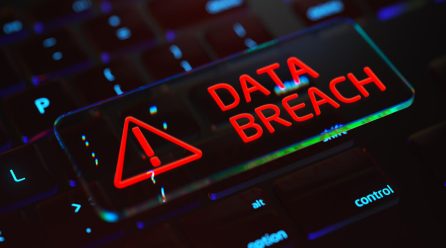When looking ahead through 2021, it’s understandable that business leaders around the globe will be feeling apprehensive about locking in their strategic plans. While most businesses traditionally look to set strategy and a roadmap at the beginning of the year, now is the time to consider a new perspective – a fresh take that supports the “new world” momentum of 2020 into 2021 and beyond.
And more than ever before, integrity and operational resilience will be key themes to explore.
As with all strategy and forecasting, all you can really do in the face of uncertainty is use the information you have at hand to make the most effective decisions possible. While for some, that may be a return to business as usual, for many, the learnings from 2021 will only sharpen the focus on, and drive the importance of, governance, risk and compliance (GRC).
In a recent Forbes article about financial forecasting for 2021, contributor Moira Vetter’s advice is to start the year with a fresh-slate strategy, stepping away from the pessimism of the past year and looking ahead in a positive and productive way, while also incorporating key learnings from the past 12 months.
“It’s not enough to move your financial targets without reconsidering the world and your new place in it. Start with a blank page this year and go back to the fundamentals,” she writes. While this is a financial forecasting example, it is also true for GRC.
While it’s important to start from a fresh slate and go back to consider business as usual goals and strategies, there have also been a number of learnings from the renewed emphasis on risk this year that should continue to be a focus in 2021.
Cyber risk is here to stay
Prior to the COVID-19 outbreak cyber risk was on the rise, and of increasing concern to large organisations, but it was the pandemic that brought it into sharp focus.
According to Adam Collins, Chief Product Officer at Camms, in a recent article Why reporting cyber risks is essential to combatting cyber crime, cyber risk management should continue to be a major focus for boards and executives alike in 2021, and must be managed, tracked and ultimately reported on, through cloud-based software for rapid responses and transparency.
“With the increasing numbers of cyber crime, and Government mandates for cyber risk reporting on the horizon, now is the time to manage your risk in a systemized and transparent way,” Adam said.
“Visibility of cyber risks at the right levels, including the very top, is essential to managing risk and ensuring that those responsible for compliance have all the information they need.
“This requires an integrated system, like Camms.Risk, that can provide large organisations with a consistent view of how all risks, including cyber and IT, are maintained and controlled.”
Camms’ integrated suite of cloud-based business software solutions, such as Camms.Strategy can also be utilised at the board level to develop and execute your strategy, measure ongoing business performance and ensure your team is working towards a common goal.
Strategic cloud-based solutions
In an article on security and compliance trends for 2021, from Corporate Compliance Insights, author Jody Patterson also lists risk management for an increasingly remote workforce as a key consideration in strategic planning this coming year.
“The events of this year were completely unexpected and unplanned. Worldwide, no one considered a scenario in which the majority of the global workforce would work remotely or how they would keep business systems secure in such a situation,” she writes.
“Business leaders should not only be thinking about how to complete this year safely with any continued remote work, but also be seriously reviewing their risk management solutions and contingency strategies to be ready if another crisis like COVID-19 forces employees home once again. This will become a top concern for 2021 planning and here on out.”
She also agrees that one of the best ways to monitor that risk is by investing in cloud-based infrastructure or online software that will allow more flexibility for an ever-shifting and changing workforce.
“We already know that cloud technology will continue to play a big part in the future of work, just as it has been doing consistently over many years now, and it will have a larger role than most anticipated in 2021, due primarily to the rise in remote work and also the need for better agility and less cost associated with on-premise solutions,” she writes.
“Companies that have not yet undergone advanced digital transformation and moved the bulk of business systems to cloud applications should be doing that now.”
Compliance shift to sustainability & integrity
According to Forbes contributor Jim DeLoach, a key decision for boards will be balancing the financial impact of investing in a social and environmental strategy with the risk of not doing so.
“In addition to addressing regulatory, financial and operational compliance, more companies also must assess how their environmental, social and governance (ESG) investments and activities measure up with organisational values and rapidly evolving stakeholder expectations,” he writes.
Simply stated, if ESG is not on your list of priorities in 2021, now might be the time to work it into your strategy.
The importance of operational resilience
Resilience has become the latest global hot topic in many industries, particularly financial services – and how your company operates structurally can have a major impact on this.
Many major companies still rely on archaic and complex infrastructures, with equally outdated and disconnected processes that provide very little opportunity for flexibility and adaptation.
Achieving operational resilience has become a crucial goal for companies looking to survive the current crisis, and the next one.
The top 5 key operational risk areas that must be considered now, to prepare for a more resilient future, include:
- Cyber Risk: overcoming the increased sophistication of cyber threats.
- Environmental Risk: planning for more severe natural disasters and extreme weather events.
- Reputational Risk: the higher risk that comes with internal change failures.
- Regulatory Risk: increased regulatory scrutiny.
- Financial/Liquidity Risk: Managing cash assets to survive future crises.
When it comes to financial risk, and the economic fallout from the past year Forbes’ Jim DeLoach, says it’s best to focus on liquidity.
“Managing liquidity is a priority for every business during any recessionary cycle or period of economic uncertainty,” he writes.
“Heading into 2021, CFOs and finance leaders are considering investments that will strengthen a wide range of cash management activities, including those related to expense management and revenue management.”
In addition to ensuring you have enough cash assets to survive any further unexpected storms, Deloach also recommends that businesses seriously consider making the most of corporate funding opportunities currently being offered by governments around the world, to keep their businesses and the economy afloat.
“CFOs and finance leaders should know what, if any, government funding and aid are available to their industries and companies, and how and when to apply,” he writes.
“These opportunities should be integrated into liquidity optimisation analyses. Finance and compliance groups also must be rigorous in determining whether the organisation qualifies for any federal liquidity programmes and diligent in maintaining the appropriate records required as a result of tapping into these programmes.”
Strategic planning tools for GRC
With so much to consider in 2021, it’s essential that businesses look at software solutions that will not only make strategy and planning easier, but also enable transparent access to real-time data that will reduce risk, improve decision making and reinforce compliance, from the top down. Being able to connect your risks, risk tolerance and risk appetite to your organisational strategy are key value propositions of the Camms suite of solutions.
According to Beau Murfitt, Chief Strategy Officer at Camms, finding a cloud-based software solution that is flexible for remote working, and can help drive your strategy in 2021, is essential.
“With integrated solutions in risk, strategy, projects and people Camms business software solutions can help corporates to make the right decisions, manage risks, and focus on what matters,” he said.
“Our Camms.Risk software is an online, cloud-based solution suitable for anyone from large corporates and SME businesses that wish to manage operational risk as part of their strategic plan and company culture – it allows the board to identify, track and manage risks no matter where they’re located.
“The Camms.Strategy software is also a comprehensive solution for strategic planning, execution, evaluation and reporting that allows board members and managers line of sight to see how every single action and task they do drives key organisational goals.”
Camms software products are also completely configurable, and can be purchased individually, then added to, or packaged up as a complete integrated business platform.
“To help track and report cyber security issues, you can manage your exposure to IT risks with Camms.Risk’s integrated risk registers and workflow tools specifically for IT,” he said.
“While the compliance management module helps business leaders to understand exposures and areas of non-compliance to drive business action and address legislative changes.”
Find out more about how Camms’ integrated, cloud-based, software solutions can help you to start 2021 with a fresh slate and get on top of your governance, risk and compliance strategy.





